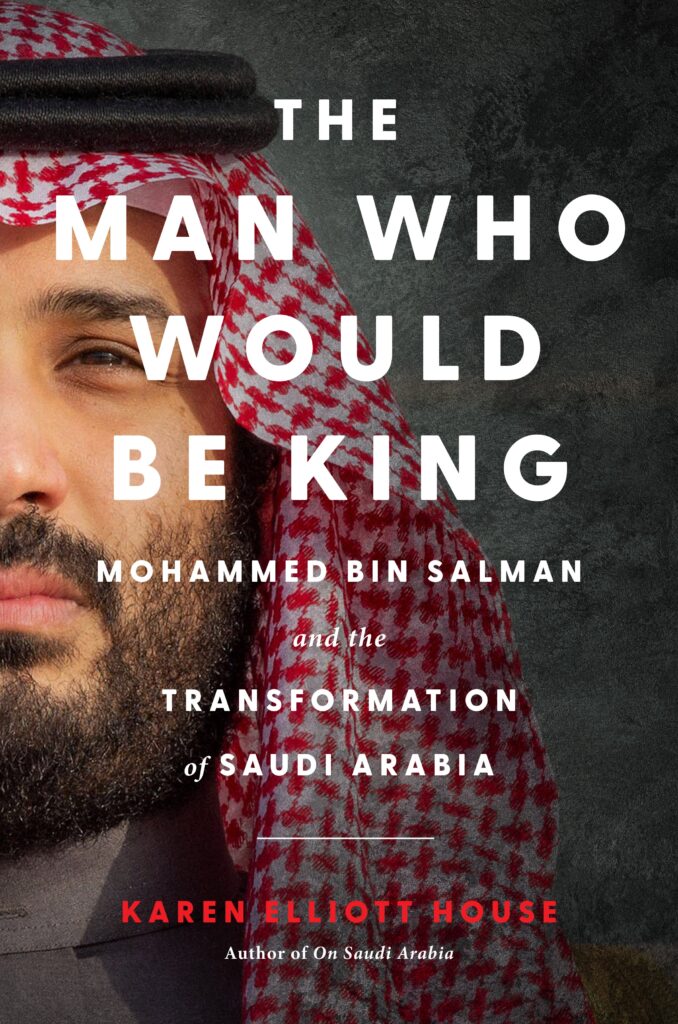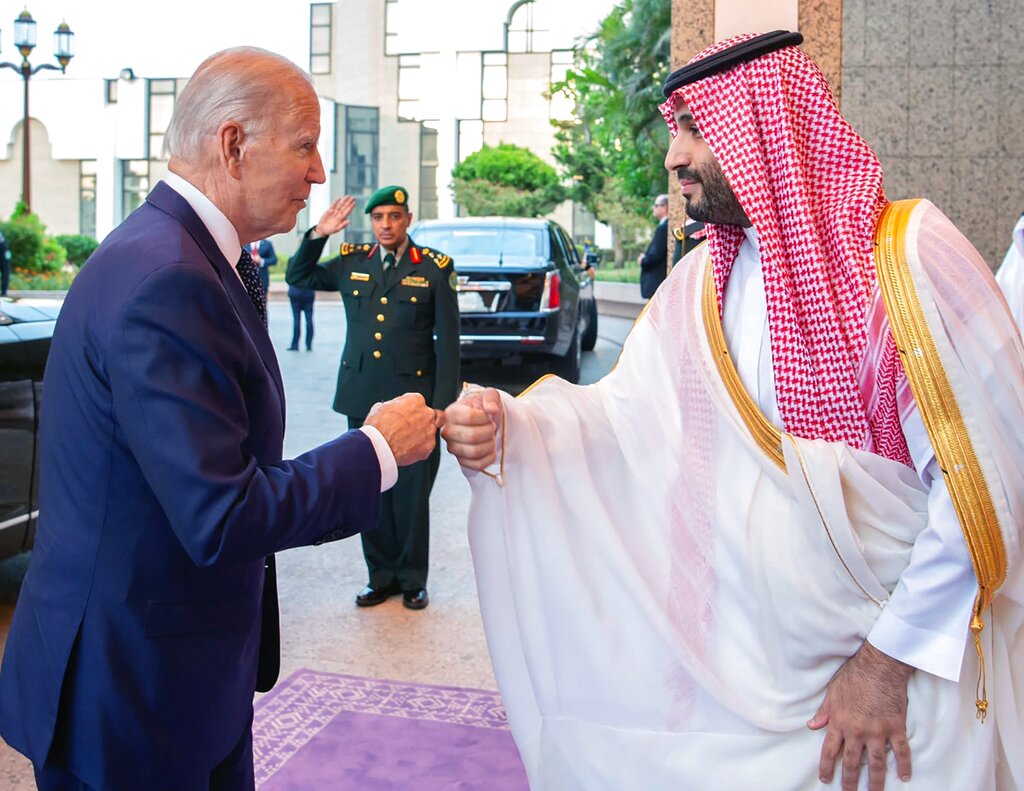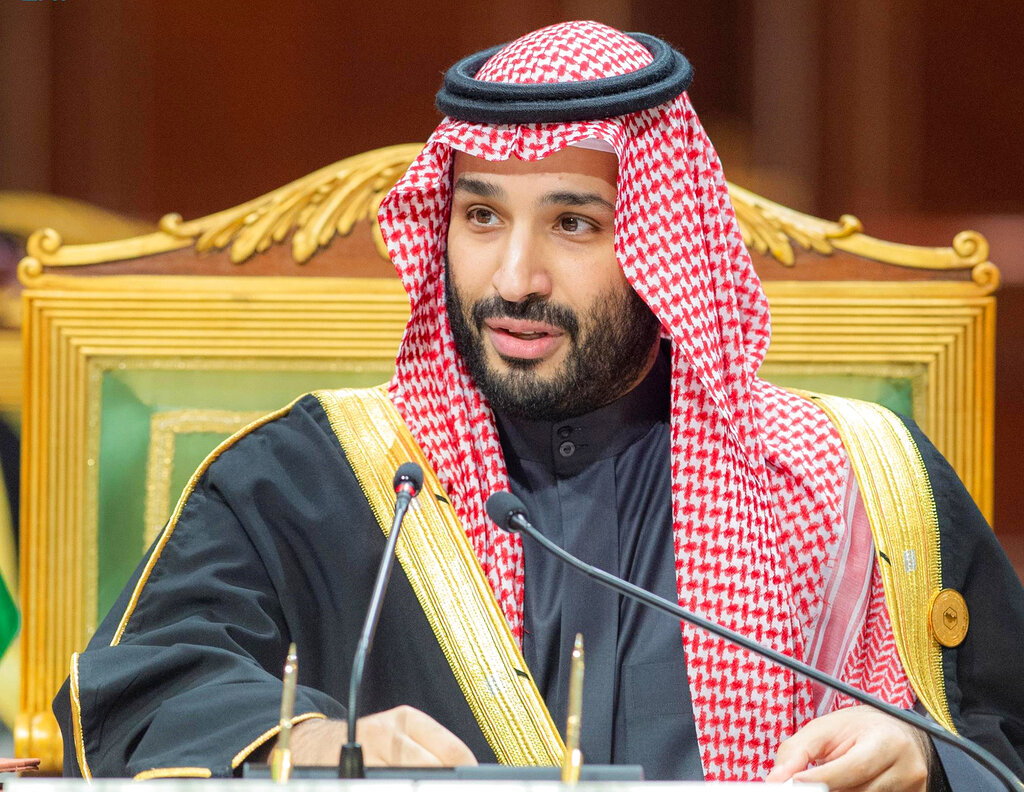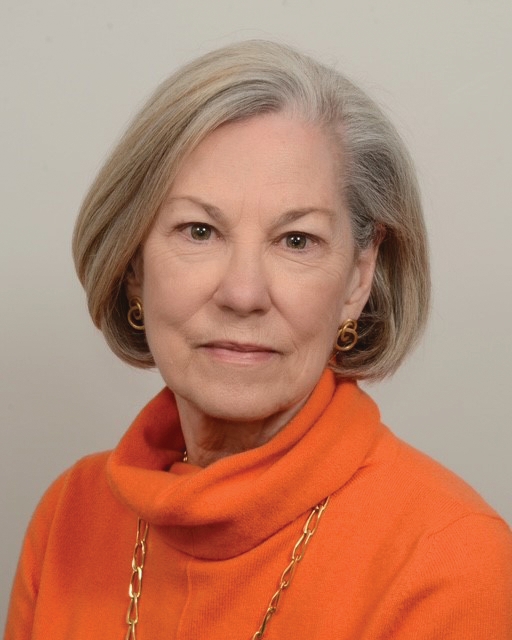The following is an excerpt from Karen Elliott House’s forthcoming book, ‘The Man Who Would Be King: Mohammed bin Salman and the Transformation of Saudi Arabia.’
Crown Prince Mohammed bin Salman is seeking to create opportunities for fun in the once austere kingdom of Saudi Arabia both to please his young Saudi supporters so long denied entertainment and to help create new sources of revenue to help transform the economy off oil earnings. Emphasizing sports and a growing entertainment industry also helps attract the foreigners he needs to help modernize the kingdom.
Having literally grown from boy to man in the straitjacket of rigid religious rules, MBS’s repeated loosening of those bindings in recent years is more than government policy. It’s personal. Like all young Saudis his age he grew up with no entertainment options.

Movies and music were forbidden. Saudi TV primarily showed grim-faced religious scholars with long beards reading the Quran, or imams leading prayers in Mecca and Medina. So, like other boys his age, MBS’s life consisted of soccer and videogames. Nintendo was his first. Then Neo Geo, a gift from his mother when he was six. The Neo Geo console still sits in his childhood bedroom at Al Shati Palace in Jeddah. To this day, the Crown Prince acknowledges playing a videogame for half an hour each morning when he wakes.
While King Salman has a reputation for being close to the religious establishment, he clearly has allowed his son to curb its power over the kingdom. Interestingly, in a 2010 conversation with Prince Salman, then the governor of Riyadh, on change in the kingdom, I asked how the twenty-five-year-old MBS, seated near him, was different from him. Without explaining how, he seemed to accept differences. He responded by citing a hadith, or saying of the Prophet Mohammed, that admonishes a father not to force his son to be like him. Both father and son seem to have heeded Prophet Mohammed.
By sixth grade the timid prince had turned bold. By his account, he replaced his younger brother, Turki, as the leader of boyhood gatherings among his brothers and their friends. He also became something of a prankster, according to a family tutor. A British tutor of the prince and his brothers described to the BBC how then eleven-year-old MBS enjoyed seizing a walkie-talkie from his guards and disrupting class by making “cheeky remarks” about his teacher and cracking jokes between his brothers and the guards on the other end. “As the oldest of his siblings, he seemed to be allowed to do as he pleased,” Rachid Sekkai, the tutor, told the BBC.

As a boy, he seems also to have developed a sense that he “sat below the salt” in the royal family. He recounts to me receiving an allowance of 2,000 Saudi riyal a week (about $500) while in fourth grade. For most of us, that seems quite a generous sum for a young boy. Still, many of his princely cousins, he says, were receiving 20,000 Saudi riyal or $5,000 a week, which seems to have left MBS feeling decidedly underprivileged by comparison.
Moreover, Prince Salman, then the governor of Riyadh, vacationed with his first wife and family at a palace in Marbella, Spain. He visited MBS’s mother and their boys at a hotel in Barcelona. “He felt a need to strive for distinction from an early age,” says an associate. Indeed, his father spent little time with him as a boy, focusing more on his responsibilities as governor of Riyadh and his older sons, including Prince Sultan bin Salman, the Arab world’s first astronaut, sent into space by the U.S. in 1985, the year MBS was born. “With older more accomplished brothers, it must have been hard for MBS to get his father’s attention,” Jamal Khashoggi mused to me over lunch in Riyadh in 2016. (A year later, frustrated that MBS forbade him to write, Khashoggi left for Washington, D.C.)
Indeed, the Crown Prince insists, and contrary to conventional wisdom among the Saudi populace, that he wasn’t his father’s favorite. “It’s a misconception,” he says. “I was not my father’s favorite.” He matter-of- factly names four of his siblings who he says rated higher in his father’s affections. Perhaps such sentiments help explain MBS’s constant striving.

One way he stood out in high school was by driving an orange Lamborghini. As a high school senior MBS was old enough to get his first car. His father urged his son to get a car like all the other boys had—luxury but low-key. MBS declined. He had saved money from gifts his uncles had given him on Islamic holidays and he was going to have the car he wanted even though it cost nearly $230,000. The pleasure didn’t last long. Driving down Thalia Street, the Champs-.Elysees of Riyadh, Prince Mohammed collided with another car and spun several times, leaving his car so damaged he had to call a friend for a rescue ride home. Knowing that his father, who governed Riyadh at the time, would quickly hear about the accident, MBS rushed home to preempt the police report to dad.
Any conversation with MBS yields evidence of his innate competitiveness. For instance, despite his heavy workload and five young children, he describes spending a weekend at his farm challenging the Middle East champion of Final Fantasy XVI, a favorite videogame in which the heir to a fictitious throne seeks to retrieve a stolen crystal and discovers he is the “True King” destined to save the world from eternal darkness. The competitive prince acknowledges that his expert guest “won sixty percent of the time,” but says he is “pleased” that he won 40 percent.
“If he loses at anything, he will stay up night and day to get better at it,” says Prince Abdullah bin Bandar, a childhood friend and videogame partner who is now minister of the Saudi National Guard. Some of the Crown Prince’s close friends believe his boyhood addiction to videogames not only stoked his competitiveness but also fired his imagination. One close associate of the Crown Prince says videogames allowed his imagination and creativity to flow and led him to believe that anything possible in a videogame is possible in life. MBS believes videogames are good for the mind. “Math is training for the brain,” he tells me in 2023. “Videogames squeeze the brain to think.”

Indeed, his Vision 2030, which seeks to wrench Saudi Arabia’s deeply conservative and long-sequestered society into the twenty-first century, is full of his grandiose, videogame futurisms. At the top of a long list is Neom, a $500 billion development nearly the size of Belgium that is located on the northern edge of Saudi Arabia where the Red Sea meets Egypt, Israel, and Jordan. It will feature an AI-driven linear city, “the Line,” a high-rise mirrored structure running 110 miles long and standing 1,600 feet high — taller than the Empire State Building. The city will have no cars and no carbon emissions, powered entirely by renewable energy.
Residents will travel by high-speed trains and flying taxis while enjoying glow-in-the-dark beaches and a fake moon to light the sky at night. One American businessman who knows MBS well said the prince seeks to avoid “incrementalism,” which he believes is demonstrably failing to solve society’s problems, and is thus eager to try bold new ideas.
All of this extreme modernity is intended to attract major Western companies to diversify the Saudi economy and reduce its financial dependence on oil. Most important, Neom is designed to create private sector jobs for the young Saudis whom the government can no longer afford to hire.

The Crown Prince also seeks to translate his gaming passion into jobs for young Saudis. In 2022 he announced creation of a National Gaming and Esports Strategy, with ambitions to make Saudi Arabia the “global hub” for both gaming and esports by 2030. He’s confident gaming and esports can create 35,000 jobs by then and generate $13 billion in revenue. His optimism that the kingdom can attract a worldwide audience for gaming events is based on the fact that in 2021 the kingdom’s 21 million gamers (an astounding 89 percent of the Saudi population) generated $1 billion in revenue.
In 2024, Saudi Arabia hosted the first ever Esports World Cup over eight weeks in Riyadh with a combined prize pool of $62.5 million, the largest in Esports history. Thirty teams representing five major competitive regions — Europe, North America, Asia, South America and the Middle East, participated.
From the forthcoming book ‘The Man Who Would Be King’ by Karen Elliott House. Copyright 2025 by Karen Elliott House. To be published on July 8, 2025, by Harper, an imprint of HarperCollins Publishers. Excerpted by permission.




